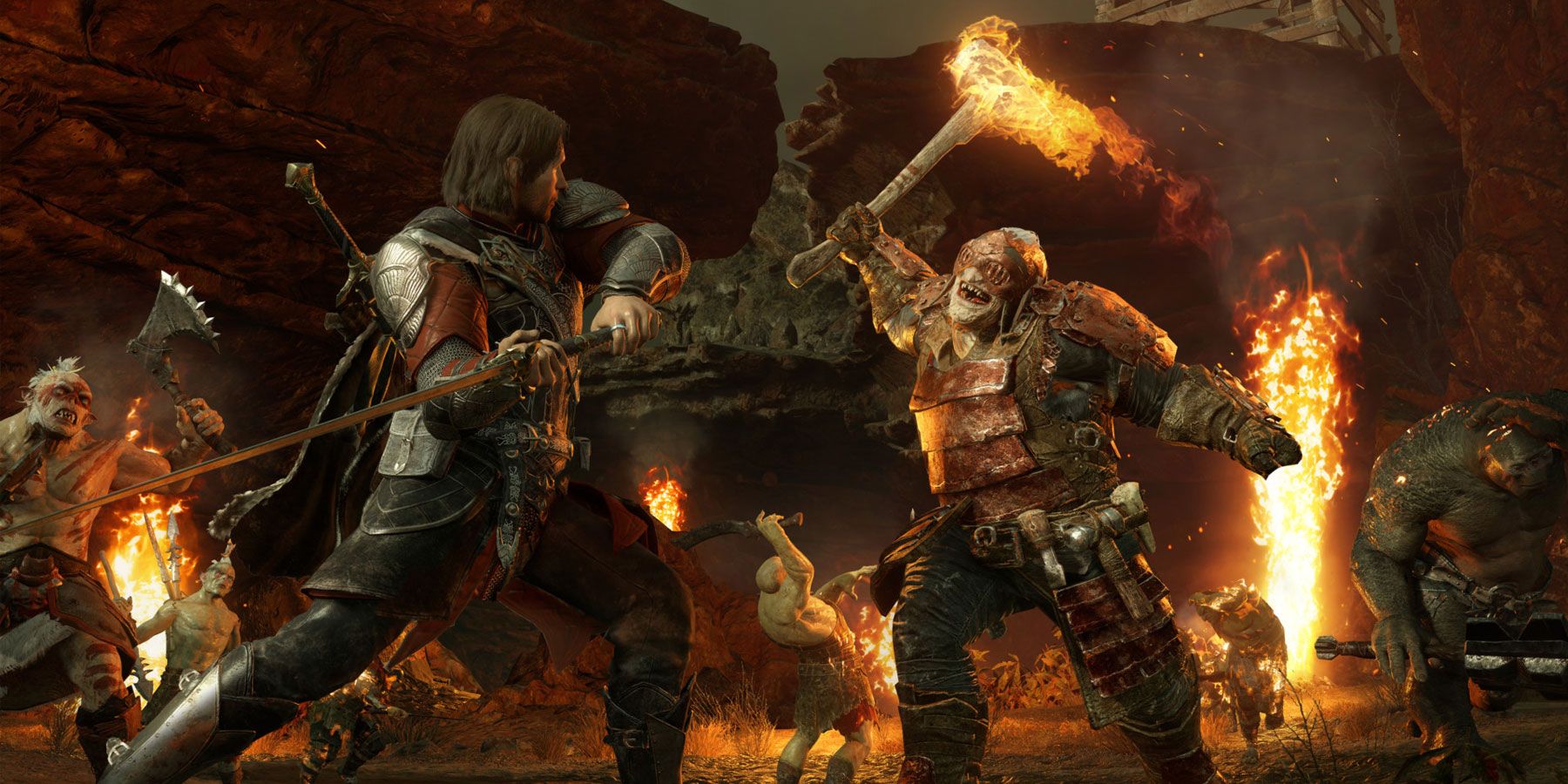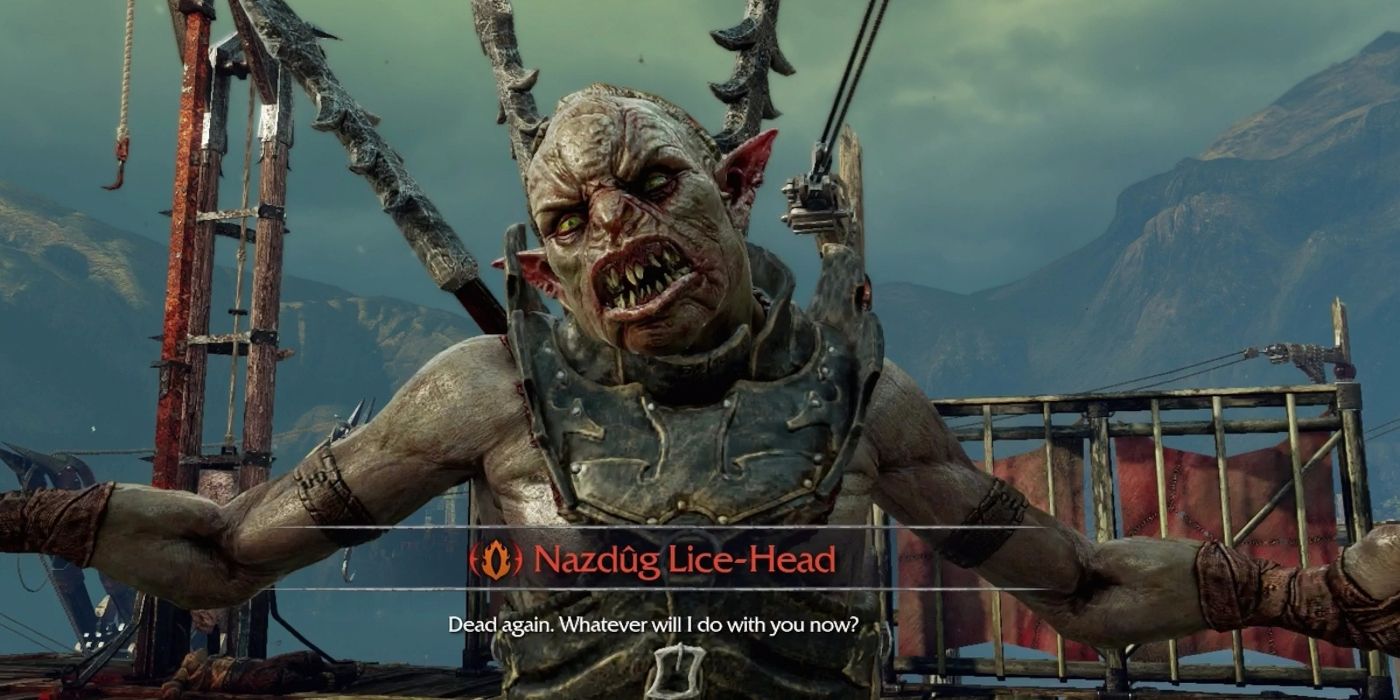Monolith Productions has a long history of making great games. From F.E.A.R., to The Matrix Online, to Condemned: Criminal Origins, the studio is clearly extremely talented. However, the recent Middle Earth: Shadow of Mordor and its sequel Middle Earth: Shadow of War really helped the studio stand out, as the games feature one of the best mechanics to come out of gaming from the last console generation: The Nemesis system. Essentially, the system takes random enemies that the player defeats and has certain ones come back to try and enact revenge several times over until one enemy becomes an unscripted recurring villain throughout the entire game.
The system elevates both Lord of the Rings titles to a new level of genius, as it makes the player's journey throughout the game feel unique to them. However, Warner Bros. Interactive Entertainment has a patent on the system, meaning that it can't be used by other studios who aren't willing to pay for a license. There's been speculation that the recently announced Wonder Woman game by Monolith will feature the nemesis system, but that may not be enough to capitalize on how great of an idea it is.
The Nemesis System and Emergent Storytelling
Emergent storytelling has become increasingly popular as a gaming buzzword over the last few years, as games have gotten bigger in terms of scope. The phrase means that the player's experience exploring a world will be unique to them if a game has enough systems in it to create meaningful semi-randomized encounters.
Unfortunately, the idea of emergent storytelling doesn't really mean a whole lot when it comes to most games. While certain elements might be random, the overall experience of the game is the same from player to player. The nemesis system is a prime example of what emergent storytelling can be, as its truly randomized nature with Shadow of Mordor's NPCs brings a certain life to the games that many other titles aren't able to capture.
It's a shame, then, that Warner Bros. has control over the system and hasn't put it to much use. Certain open-world games have tried their own hand at creating systems similar to the nemesis system, such as the most recent Assassin's Creed titles, but because of the restrictions of the patent, they're all missing the charm and personal relations of the mechanic. The option is definitely there for studios to purchase a license to use it, but it's expensive. Given the ever-changing nature of game design, it could be a costly mistake if it's purchased but ends up on the cutting room floor for one reason or another.
The solution for the problem rests solely on Warner Bros., as the company could capitalize even further on the mechanic, but hasn't chosen to. If it wants to be the sole owner of the idea, then it should be working on some games that make use of it. Wonder Woman might, but there hasn't been much information about the game made public yet, so it's still to be seen. If it wanted to, Warner Bros. could likely publish a title using a completely new IP that solely focuses on the nemesis system as a mechanic and it would likely do well given how popular the system was with gaming fans when both Middle Earth titles were released.
Warner Bros. Interactive Entertainment will hold the patent until 2035 which means that the system could fade away if the publisher isn't careful. Hopefully, all of Monolith's titles at the very least feature the system as it's just too much fun to sit on a shelf unused for the next 10 years or so.
Wonder Woman is in development.


